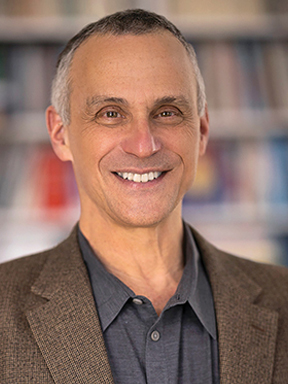From the President: Doing Our Part to Shore Up Democracy
There is a clear and present danger to American democracy and to American higher education: populist authoritarianism. This is no secret, and yet many in higher education would prefer not to talk about it. Instead, we find ourselves wondering if presidents at a few elite schools should resign. This is a grave and cowardly mistake. It is not a matter of supporting a political party or issue. We in higher ed must stand up for the values that make free inquiry and teaching possible. We must defeat a movement that has already promised to seize control of how we study, conduct research, and teach. This is no time to seek refuge in doctrines of neutrality.
Such doctrines led to the kind of flaccid, lawyerly responses we heard from Ivy League presidents testifying in front of Congress last December. “That depends,” is not an answer you want from someone whose job it is to protect students confronted with calls for their annihilation.
While commentators rail against efforts at inclusion and the slogans of campus protestors, students are increasingly choosing to focus their studies in fields more quantitative than value-laden. Disengagement, not protest, is the norm. Even some humanists urge their colleagues to stick to disinterested scholarship and preserve the “contemplative mood.” Humanities professors who believe that a retreat to the cloister is the best they have to offer are just hoping that their own charisma will make up for their failure to provide their students the tools with which to construct meaningful lives.
We must resist this kind of intellectual isolationism—whether it be from presidents or the governing boards of institutions. We must refuse the privileges of academic sanctuary in the face of tyranny and reject the ironic stance of professors who imagine that tenure is enough protection—at least for them. Why worry so much now about white nationalism, some say, when we’ve long known so much racism; others respond by saying that the opponents of authoritarianism aren’t so great either. Evasiveness comes easy.
We must resist these moves. Colleges and universities have long claimed that promoting civic participation and liberal learning through engagement in the public sphere is central to their mission. Professors and administrators often find themselves in disagreement, but there has been wide support for the idea that schools should help students develop civic preparedness, the ability to work across differences for the public good. Through our work over the last four years, hundreds of schools have embraced these three principles:
- Developing civic preparedness is a core element of the mission of American higher education.
- Participating in American political life helps students learn from a diversity of ideas and people while developing skills for lifelong, active citizenship.
- Empowering students and teachers to engage with the complex issues facing the country are crucial facets of higher education’s contributions to the common good.
The urgency of this work has only grown, and now we’re calling for schools to double down on student democratic participation in 2024. We hear talk almost every day about the threats to our democracy—not just that one’s preferred candidate might lose but that the electoral system and the civic culture in which it is embedded is at profound risk. In order to do our part to shore up democracy and combat the rampant cynicism about elections, we must seize this moment to galvanize learning through political participation. By defending democracy, we will deepen learning; by deepening learning, we will defend democracy. Both will make our educational institutions more effective, and this will create a virtuous circle of civic preparedness for the country as a whole.
“We must seize this moment to galvanize learning through political participation. By defending democracy, we will deepen learning; by deepening learning, we will defend democracy.”
President Roth
We in higher ed should not be focused on poor presidential answers to a MAGA warrior’s questions. This amounts to fiddling when flames threaten to engulf the republic. We must affirm the core principles of civic education and take specific actions to defend democracy while it is still possible to do so.
For Wesleyan, this included hosting Democracy in Action, a mid-February gathering of students and thought leaders eager to find ways to help students participate in the public sphere, work in the electoral system, and vote. You will hear more about this and other ongoing civic engagement efforts in the year ahead.
Whatever party or candidates one supports, colleges and universities must defend democracy to defend their very mission, to defend their values of free inquiry and teaching. At this time that means calling out the dangers of tyranny while inspiring democratic practices among young people so that we can defend our country from the incendiary forces that call to burn it all down.

